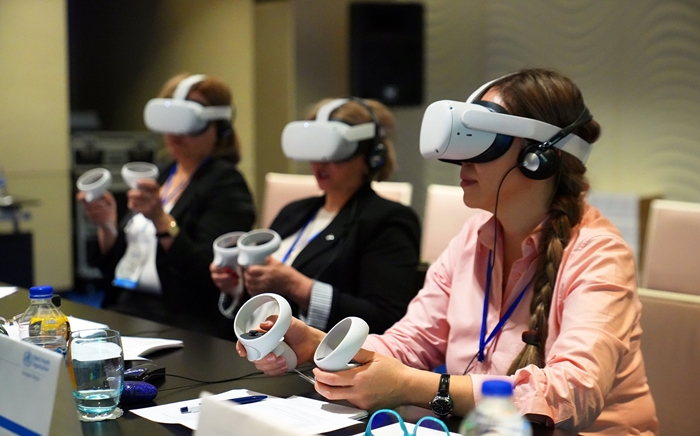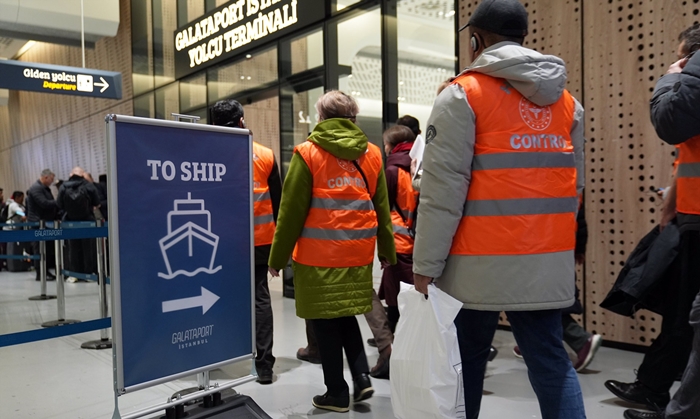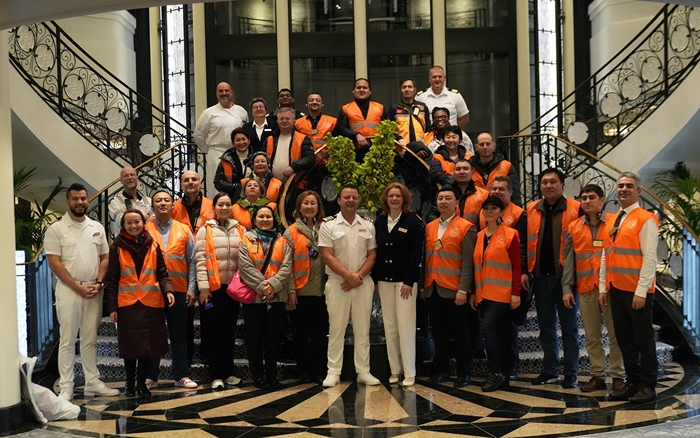A new digital solution of the World Health Organization for the sanitary inspection of ships was tested for the first time by participants of the 4-day training in Istanbul, including medical workers from Turkmenistan.
The COVID-19 pandemic has had an unprecedented impact on the maritime sector, proving the critical importance of maintaining public health capacity in ports. During the pandemic, access to ports that inspected ships and issued ship health certificates was severely restricted. As ports have resumed operations, the need for trained port health workers has been identified as a priority for many countries.
To meet this need, on 27-30 November 2023, WHO/Europe organized a comprehensive 4-day training in Istanbul for a group of 13 specialists from Azerbaijan, Kazakhstan and Turkmenistan representing port health officers and national International Health Regulations (IHR, 2005) focal points.
As part of this training, participants tested a new virtual reality (VR) tool developed by WHO and presented for the first time. With the help of VR tool, trainees were able to find themselves in realistic conditions of the technical areas of the ship to ensure careful sanitary inspection. During virtual reality inspections, port health workers can identify and record all evidence of contamination or infection and other risks to human health in various areas, facilities or systems of the ship – on decks, in engine rooms, cabins, dining areas, locker rooms, cargo holds, ship hospitals. In total, more than 20 zones were recreated virtually.
The VR simulations provide the trainees with a life-like experience. With the help of special headsets and hand controllers, they can walk through a VR vessel, which offers the added benefit of being able to train port inspectors and other professionals working at ports remotely. The simulation helps them to learn how to conduct a comprehensive end-to-end sanitation inspection of the entire ship, including how to undertake risk assessment work, and how to interact with the captain and crew.
WHO says that the virtual reality tool once fully launched will elevate the standards of training in the field of sanitary inspection of ships. The tool will benefit over 230 ports in the WHO European Region and 41 countries with authorized ports for issuing ship sanitation certificates.
The VR training solution was designed by the Learning Solutions and Training (LST) unit at the WHO Lyon Office in France, with technical guidance from the Border Health and Mass Gathering (BHMG) Unit at WHO headquarters in Geneva.
The 4-day training in Istanbul was part of a series of capacity-building activities at airports, ports and land checkpoints supported by WHO/Europe to improve border health protection in the region. It was organized with the support from authorities at the General Directorate of Health for Borders and Coasts of Türkiye who hosted the training and facilitated access to all training facilities, including a cruise ship at the Galataport, Istanbul. The programme combined VR simulations, learning activities, and site visits to ships and ports. ///nCa, 4 January 2024 (based on the WHO press release)


